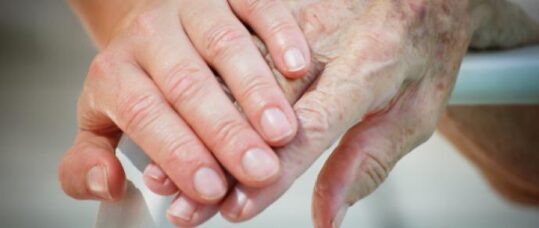Majority of LGBT community fears discrimination when accessing end of life care

Nearly three quarters of LGBT people are not confident that healthcare services can provide them with sensitive end of life care.
The report by Marie Curie found that this lack of confidence meant LGBT people are more likely to delay accessing the care they need, experience unmanaged symptoms and pain at the end of their lives.
Hiding who I am: Exposing the reality of end of life care for LGBT people looks at barriers that prevent LGBT people from accessing end of the life care and highlights their real-life experiences.
Many people said they felt anxious about having to hide who they are when accessing palliative care.
Related Article: Action needed to tackle untreated hearing loss in care homes
The report said this likely stemmed from the fact that a quarter of the 237 people interviewed having experienced discrimination from health and social care professionals in their lifetime.
Meanwhile, others feared disclosing their sexual orientation to healthcare workers, having grown up during a time when being gay or lesbian was illegal.
The report estimates that more than 40,000 LGBT people die each year in the UK.
However, it is suggested that a significant number miss out on the care and support they need, despite experiencing higher rates of life-threatening diseases than the national average.
Hannah Kibirige, head of policy at Stonewall, said: “Lesbian, gay, bi and trans people in later life often experience specific forms of discrimination that go unnoticed by others around them.
“Often older LGBT people are extremely vulnerable, particularly if in care or terminally ill, and so it’s vital that healthcare staff are aware of the experiences they face.”
Related Article: ‘Alarming’ health inequalities between older people in the North and South of England
Amanda Cheesley, professional lead for long-term conditions and end of life care at the Royal College of Nurses (RCN) said: “Despite progress made in improving care and tackling prejudice, it’s tragic that people are dying alone without the person most dear to them and unheard by the very people who should be providing them with support at the end of their lives.
“It is right that these problems are being exposed, and this report should be a watershed. People from the LGBT community should not be having to cope with the distress of dying or bereavement whilst worrying about their care.
“Older LGBT people are even more vulnerable and there are very real concerns that they are already facing variation in care because of their age.
“If this is compounded by their sexual orientation then this makes it even harder for them and their loved ones.
“Health staff should be asking all dying people who they want involved in their end of life and recognising that next of kin are not always blood relatives.
Related Article: Sundowning in dementia: what nurses can do to support patients
“All of those involved in delivering care at the end of life must now work together to ensure that the distressing situations described in this report are firmly in the past.”
The Marie Curie report is a literature review that draws on interviews conducted in studies at the University of Nottingham and King’s College London.

See how our symptom tool can help you make better sense of patient presentations
Click here to search a symptom


Nearly three quarters of LGBT people are not confident that healthcare services can provide them with sensitive end of life care



